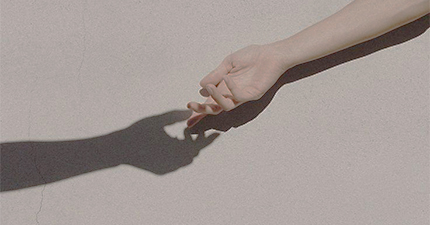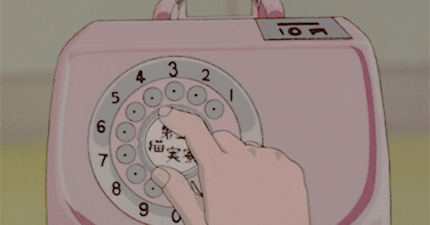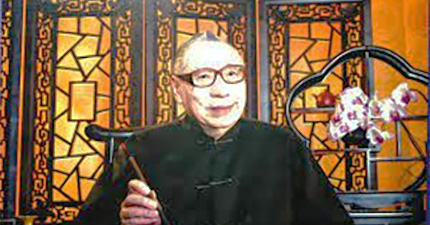I think that, a lot of the time, the way we think about power in social justice spaces is a problem. Way too much of the time, people define power as something fundamentally corrupt. We like to cleanse our hands of it, we like to never admit that we want it, and we like to describe situations where we were disempowered but refrain from describing situations where we have power.
The reason we do this is because power, sold on the market, is a dynamic. We see power as the same as dominion and we don’t want to be weirdly bossy so we don’t want to see ourselves as powerful.
When Foucault wrote about biopolitics, he described power not as a top down approach but as a social agreement that is reinforced by all of the players in a society. In other words, in a hierarchy, power needs a bottom and not a top. Kafka elaborated on these ideas when he wrote about a bureaucracy in which all of the bureaucrats that reinforced a set of arbitrary rules apologized for their reinforcement before excusing their forcible and stupid actions by saying that a ruling sovereign is responsible for the rule and that they’re just doing their job. At the end of the story, it’s revealed that there is no sovereign. All the bureaucrats reinforcing arbitrary rules are either propagating the illusion of a sovereign as an excuse to excuse their own bad behavior knowingly or they are just following the norms that everyone else is following without thinking too much about it.
And the thing is, even if there is some sovereign making up rules for how we all run things, that sovereign person only has power because everyone else agrees that they have power.
What this story and Foucault illustrates is that power is never ever a top down dynamic. In fact, power is always given and received from a group consensus. When we decide that we are powerless and that we are helpless to the rules and power of other people—that’s when we reinforce power structures.
In social justice spaces, we spend way too much time enjoying how we give up power. We seek jobs that wreck the least amount of harm, we drop out of powerful institutions as if stepping away from them will remove their presence, and we’re ready with vocabulary describing our disempowered conditions. We side eye people who seem to want power and feel shame if we crave it. We say that the last thing we want is power and that we just want to “be.”
Even social justice language, saying that we are marginalized (so that we never occupy central positions where we can develop powerful consensuses) and that we are minorities (even if our numbers overwhelm the supposed “majorities” so that it seems as if we do not have the numbers to develop overwhelming power) reinforce this terror around power.
And I get it! Power is scary because there’s so much responsibility in it. People are afraid to make mistakes because everyone makes mistakes and people are really afraid to make mistakes in a position of power and harm other people.
But, if power is just a group consensus, and all of us are looking for belonging and validation and home, it’s important for us to understand that it is power that produces belonging and validation and home. It is important for us to understand that power produces all these things when the collectives that produce power prioritize these things.
The way we are sold power in media is a toxic white male fantasy. It’s aesthetic. It’s all about antiheroes who go against the group and force their will on their worlds. This fantasy is an illusion because it literally doesn’t exist in the real world. Real world power exists when the norms of a society and the folks who exist inside of the power structure support the norms at play.
Instead of believing that power is only domination, let’s start thinking about power as love. The thing is, we have all these positive associations around love and feel no shame in talking about how we act with love even though many of our love narratives exist inside of rape culture. We think that we can save love from our rape culture. Why can’t we frame power the same way? Even if a lot of our power narratives are situated inside of oppressive cultures, why can’t we still believe in our own power the same way we still believe in love? Love is as toxic as power so let’s just steal it back.
Because power, since is only exists when it is shared and disappears when it is not shared, is a little like love. Like love, power grows when we give it and when we receive it. It’s impossible to possess power on your own just like how it’s impossible to possess love on your own. It’s something that lives inside of relationships.
The other thing is, because power and love are both social agreements and behave so similarly, a lot of the time, when we say that we’re looking for love, we’re actually looking for power. It’s important to make the distinction to yourself because it is OKAY to want power. Everyone deserves to have power. Power is the agency to decide whether your environment is going to get polluted. It’s the ability to influence legislation so that things support your own interests. You have the right to these things and to power. When you understand this and understand that power gives you the ability to protect yourself, you stop looking for a protector or a savior from sexual romantic relationships.
And it takes a lot of work to steal power away from these toxic male narratives around it, the same way it takes a lot to steal love away from rape culture. I’m not sure whether everyone deserves power just like I’m not sure whether everyone deserves love because these things can only be given, not taken, and because you can’t be entitled to things that only grow from consensus/consent. As we define love through consent, it’s also important to define power through consent. This means changing our entire vocabulary around what it takes to create and hold and give power. If we give power to something, we should be as enthusiastic as we are when we give love. Anything else and we are supporting a pseudo-power—a power without consent.
So, let’s develop some new words around giving power to each other enthusiastically and with pleasure, around holding power for a collective while being an imperfect person who makes mistakes and receiving forgiveness and understanding, and for the long and difficult but joyful process of developing trust with one another through making consensual power together.
1 of 188
>>>


